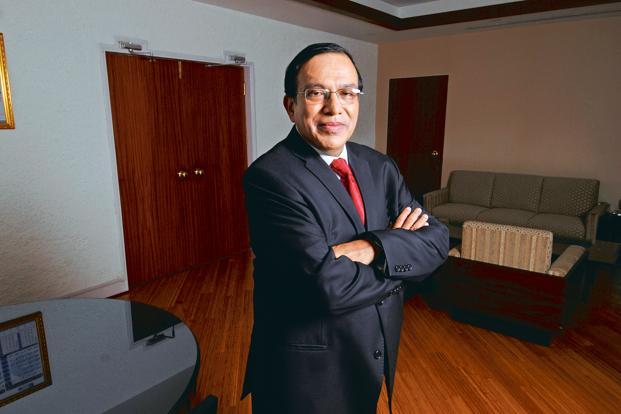In an exclusive interview to Firstpost, Pratip Chaudhuri, the former chairman of SBI claimed that The Reserve Bank of India (RBI) has been “lying on the face” to the public about the cash situation of India.
As per Firspost reports, Chaudhuri said, the central bank should have been more honest about the process of demonetization and its effects on economy.
“If there is a problem, you should share it and come clean,” Chaudhuri said, instead of ‘running away and hiding”.
According to Chaudhuri, neither will the cash situation be stablet for the next three months nor will it leave India’s economy unaffected. This will have a lasting impact on the economy as India’s rate of consumption has hysterically reduced due to lack of cash.
As Firstpost asked interviewed this veteran banker, this is what he had to say:
Demonetisation announcement were made two months from now. How do you look at the situation when look back?
It is very natural for countries to take back its old currencies. However there is a way of doing it. Dragging away 86 percent currency was not the best solution to check the flow black money. It was a bad idea. Demonetisation was partially successful in checking fake currency, but not black money. No country does it in this way.
There is no doubt that the government failed to assess the effectiveness of note ban as a measure to achieve the stated objectives. But, (at best), it is an attempt made to achieve the stated objectives.
Do you think demonetisation was forced upon the banking system?
It was Indian Government’s decision to ban old notes. And the only point of exchange was banks. They had to do it, had no choice. But, thing could have been done more efficiently. An ATM works 24 hours a day, 168 hours a week, but by restricting it to say 5 hours a day you are making it 30-35 hours a week, you made cash dispensation low. And mechanically it can be distributed much quicker than manually. With this kind of restrictions, things got worsened. And with banks put on this job, all other things — home loans, car loans — came to a halt.
And RBI was a silent spectator?
RBI couldn’t do much, absolutely. In fact, RBI should be like a fireman. If there is a fire, the fireman should douse the fire, but here, it is running away.
Should the demonetisation announcement have come from RBI rather than PM?
No. It was an administrative and a political decision. Also, who owns the RBI?
How long it will take the cash crunch to ease and things return normal?
Due to inadequate number of fresh printed notes, it would take at least three more months minimum, considering how the cash replenishes. Though the withdrawal limit of ATMs have increased from Rs 2,500 to Rs 4,500, but if you do a sample check of the ATMs, one out of two ATMs are not dispensing cash (even now). That means, the RBI is awfully short of cash.
Is it because shortage of Rs 500 notes?
Largely yes. But, also due to the shortage in all other denominations.
But, RBI has been periodically assuring the public that there is enough cash?
That is false. RBI is lying in this case. If they have enough cash, there are 2 lakh ATMs in this country. What prevents them from putting one crore rupees in each of these ATMs and saying you draw Rs 5,000 or Rs 10,000? The crowds will diminish.
So, they are lying on the face about cash situation?
Yes, they are lying on the face. See, if there is a problem, you should share it and come clean. For example, the cooking gas subsidy was spinning out of control. The Prime Minister made an appeal to the public those who are better off should give up subsidies. More than one crore people obliged. The RBI should have come forward and said that this is the problem, rather than hiding. The RBI has reduced itself to nothing.
RBI has also been blamed for lack of transparency. Your views?
They (RBI) do all India video conferencing etc for monetary policy (for transparency). Why can’t they do it for currency issue (to be transparent and alleviate the public concern)? There is a general sense that RBI has given more cash to private sector banks. But, private banks are not much in rural areas. That’s why cash is not reaching rural areas. But, I don’t have any evidence to prove this. The introduction of Rs 2,000 notes was a good decision. In India, Rs 1,000 note can’t even buy a good pair of shoes.
Non-cash transactions have spiked post note ban. Isn’t it a good thing?
That’s because, there is no other option. People do it for convenience and nobody is willing to pay for it. For instance, this sparring that is taking place in petrol pumps. I want it, but not me, because I’m not willing to pay.
But, the government is saying that retailer and consumers don’t need to pay extra.
It is very easy to say that others will bear it. Businesses are saying they don’t have margins and oil companies will have to cut down their refineries function. It is not sustainable method.
Shouldn’t the change into cashless economy happen gradually?
People should feel the need. It should happen gradually. We have seen more number of people using debit cards for transactions. This has been happening, and not out of any compulsion. Incentives can help, but not something like lucky draws. Because, I don’t know whether I will get it for sure.
What kind of impact do you foresee on the economy due to note ban?
The consumption is hurt in a big way. That is bad.
But, won’t that come back when cash crunch eases?
Let’s see. Initially, it was said that the pain is only for 50 days. Now, it is elongated. And some of the consumption demand that is gone won’t come back. For instance, I was planning a vacation to Rajasthan, I may not do it anytime now.
Are we looking at a lasting pain phase?
Not because of this (cash crunch) alone. You see, when the consumption demand goes down, it will take a long time before it recovers. It is like you are driving a car at 50 km/hour and you bring it to a halt in 2 seconds. Now, to back to 50 km/hour, 2 seconds will not be sufficient, isn’t it?
What is happening in informal economy?
If the auto driver doesn’t get his fare, he won’t buy vegetables. It works that way. Also, job losses will have cascading impact, it is quite serious. That is happening. Business confidence doesn’t come back like we turn on a switch. Also, bank credit growth is at multi-year lows. This is quite serious. Corporate credit has already dried up. Now, if housing also dries up, what will happen?
Will the recent steep cut in home loan rates help?
It should help. They had to do it at some point, If RBI abolishes CRR, and it will help even more to push credit growth
This interview was conducted by FirstPost, later curated and published by Newsd.

















